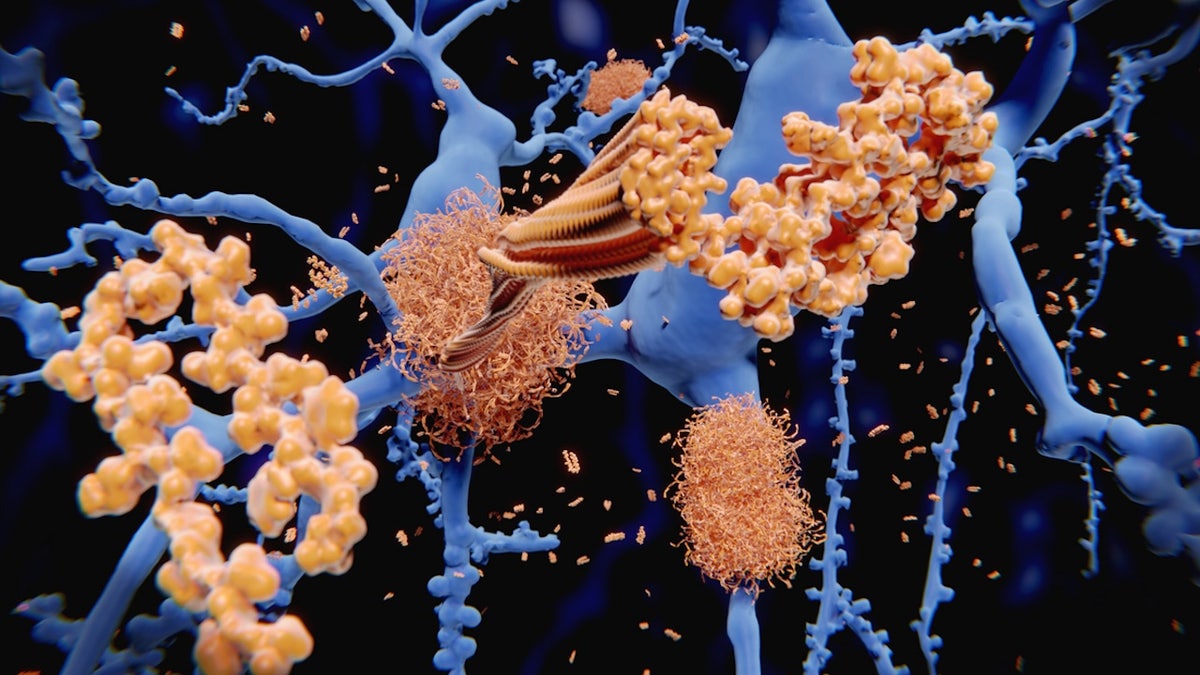NEWNow you can hearken to Fox Information articles!
Two most cancers medicine might probably gradual and even reverse the consequences of Alzheimer’s disease, a brand new research suggests.
Researchers on the College of California San Francisco (UCSF) explored how the widespread dementia modifications gene expression (which genes are turned on or off) in sure mind cells, in response to a press launch from the college.
Subsequent, they checked out which present FDA-approved drugs would possibly counteract, or reverse, these modifications.
ALZHEIMER’S RISK COULD RISE WITH SPECIFIC SLEEP PATTERN, EXPERTS WARN
In analyzing tens of millions of digital medical information of adults over 65, the researchers recognized two drugs that appeared to scale back the chance of Alzheimer’s within the sufferers who took them.
The drugs — letrozone and irinotecan — are each accredited to deal with most cancers. Letrozole is a breast most cancers remedy and irinotecan treats colon and lung cancer.
When the scientists examined a mix of each drugs in mice, they famous a reversal of the gene expression modifications that have been initiated by Alzheimer’s.

Two most cancers medicine might probably gradual and even reverse the consequences of Alzheimer’s illness, a brand new research suggests. (iStock)
In addition they found a discount in tau protein clumps in the brain — a key marker of Alzheimer’s — and an enchancment in studying and reminiscence.
“Alzheimer’s illness comes with complicated modifications to the mind, which has made it robust to review and deal with, however our computational instruments opened up the potential for tackling the complexity straight,” mentioned co-senior creator Marina Sirota, PhD, the interim director of the us Bakar Computational Well being Sciences Institute and professor of pediatrics, within the press launch.
EATING THESE COMMON FOODS COULD REDUCE ALZHEIMER’S RISK, EXPERTS SAY
“We’re excited that our computational method led us to a possible mixture remedy for Alzheimer’s primarily based on present FDA-approved drugs.”
The outcomes of the research, which was funded partially by the Nationwide Institutes of Well being (NIH) and the Nationwide Science Basis, have been printed within the journal Cell on July 21.

In analyzing tens of millions of digital medical information of adults over 65, the researchers recognized two drugs that appeared to scale back the chance of Alzheimer’s within the sufferers who took them. (iStock)
Whereas the research’s consequence was promising, the researchers acknowledged a number of limitations, together with the truth that the database they used to determine attainable medicine was constructed from cancer cells, not mind cells.
In addition they famous that animal fashions have been used.
“Though mandatory, validation in animal fashions could not totally recapitulate human biology,” the researchers wrote.
MEN FACE DOUBLE DEMENTIA RISK IF THEY HAVE A HIDDEN GENETIC MUTATION
There was additionally a noticeable gender distinction in response to the drugs, with male mice responding higher than females.
“As a hormone modulator, letrozole would possibly contribute to this intercourse distinction,” the workforce famous. “Nevertheless, the evaluation stays inconclusive because of the small variety of male letrozole customers.”
The digital medical information might additionally current limitations, “as information are typically sparse and will not be collected with specific research in thoughts.”
“We’re hopeful this may be swiftly translated into an actual resolution for tens of millions of sufferers with Alzheimer’s.”
Greater than seven million individuals within the U.S. are presently dwelling with Alzheimer’s, in response to the Alzheimer’s Affiliation.
This quantity is predicted to method 13 million by the 12 months 2050.

Greater than seven million individuals within the U.S. are presently dwelling with Alzheimer’s, in response to the Alzheimer’s Affiliation. (iStock)
There are presently solely two disease-modifying drugs which were FDA-approved to deal with Alzheimer’s, UCSF states.
Lecanemab (Leqembi) and donanemab (Kisunla) are each monoclonal antibodies which might be administered through IV infusions.
CLICK HERE TO GET THE FOX NEWS APP
They work by lowering the build-up of amyloid plaques within the mind, however they’re solely efficient for these with early-stage Alzheimer’s and have the potential for some critical side effects, in response to consultants.
(Different Alzheimer’s drugs assist with signs, however don’t deal with the underlying illness.)
CLICK HERE TO SIGN UP FOR OUR HEALTH NEWSLETTER
“Alzheimer’s is probably going the results of quite a few alterations in lots of genes and proteins that, collectively, disrupt brain health,” mentioned co-senior research creator Yadong Huang, M.D., PhD, professor of neurology and pathology at UCSF, within the launch.
“This makes it very difficult for drug improvement — which historically produces one drug for a single gene or protein that drives illness.”

Current Alzheimer’s medicine work by lowering the build-up of amyloid plaques within the mind, however they’re solely efficient for these with early-stage illness. (iStock)
Wanting forward, the researchers plan to begin a scientific trial to discover the mixed medicine’ affect on human sufferers with Alzheimer’s.
“If fully impartial information sources, equivalent to single-cell expression information and scientific information, information us to the identical pathways and the identical medicine, after which resolve Alzheimer’s in a genetic model, then possibly we’re onto one thing,” Sirota mentioned within the launch.
For more Health articles, visit www.foxnews.com/health
“We’re hopeful this may be swiftly translated into an actual resolution for tens of millions of sufferers with Alzheimer’s.”

